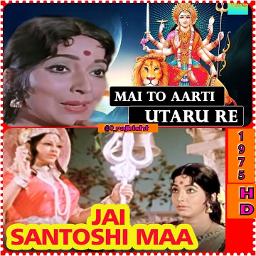What is the meaning of the term "Dharma", in your faith?
Is it a set of obligations?
Is it a set of teachings?
Is it an abstract set of "natural laws" and phenomena?
How does an adherent of your faith gain knowledge of their Dharma?
Dharma means justice. It is clearly known. To speak truth is justice. To speak a lie is injustice. “Speak truth” is called as vidhi dharma or justice insisted. “Don't tell a lie.” is nishedha dharma or negation of injustice. Apaddharma means the justice modified in certain cases. Dharma sukshma means the deep analysis of a case in which the apparent justice is contradicted by the subtle justice, which is hidden at the outset. Apaddharma is modification of justice in some special cases and the application of modification of justice is extended to every case by the human being saying that such case is a special case. Apaddharma means violation of justice in the case of difficulties and dangers.
It is said that you can tell lies in the case of marriage, danger to life, loss of money, loss of prestige, ladies, protection of cow and protection of preacher. When the violation of justice is done in the above cases without analysis, it is called as apaddharma. Same apaddharma is done in the case of all the above mentioned cases without analysis so that you can extend the violation of justice stamping every incident as a case of difficulty or emergency. But, if you do analysis of any specific case and then decide that the violation of justice is justified, such decision of very deep analysis is called as Dharma sukshma or subtle dharma. The subtle dharma should be voted against the gross apparent dharma.
I will explain this Dharma sukshma with the help of an example. A saint was having some money with him and robbers attacked him. The saint ran and was hiding himself in a dense bush. The robbers came there and asked a sage about the saint. The sage is very particular of telling truth only in his life. The sage showed to the robbers the bush in which saint is hiding himself. The robbers caught the saint, killed him and took away all the money possessed by saint. The sage was taken to hell after death for telling the truth and for not telling a lie. The higher justice is not to harm anybody (ahimsaa). Telling truth is justice of lower grade. You can violate the lower grade for the protection of upper grade. Hence, in that specific case, telling truth is injustice because
harming the life of a saint is worse than telling the truth.
In this way, in that specific case, deep analysis is applied to find out the hidden subtle justice. This need not be generalized to every case. Instead the saint, a murderer running followed by police is hiding himself in a secret place observed by you. Here also if you show the murderer, he will be arrested by police and will be hanged to death. Here also the life of the murderer is harmed. Based on the first case, you should not tell a lie here, which will be total injustice. You have saved a murderer, who is going to kill several human beings in the future. Hence in both cases, danger of life is common.
You should save the life of the saint but not the life of the murderer. You must distinguish these two cases and should not apply the principle that justice of lower grade can be violated to protect justice of higher grade. Hence,
violation of justice mentioned in certain contexts should not be accepted in general unless every specific case is deeply analyzed before drawing the conclusion.
For example, it is said that telling lies to a lady is apaddharma. This is not correct. The nature of psychology depends upon the qualities of the individual soul and not on the minute differences in their gross bodies resulting in the difference of gender. The place of lady should be replaced by a 'human being telling lies'. Hence scripture should not be followed blindly because some person having the ego of male domination should have introduced this word in the scripture, which is proved to be wrong through analysis. The above statement of apaddharma is from the Mahabharatam written by sage Vyasa in which several insertions were done.
Deep analysis to find out the subtle truth is a necessity in the case of spiritual knowledge also. Following the statement of scripture blindly is to be avoided since you must note that even the scripture has the possibility of adulteration, be it even the original scripture like the Veda. We are not contradicting the scripture Veda spoken by God. We only contradict an insertion of a mischievous person in the case of any scripture.



